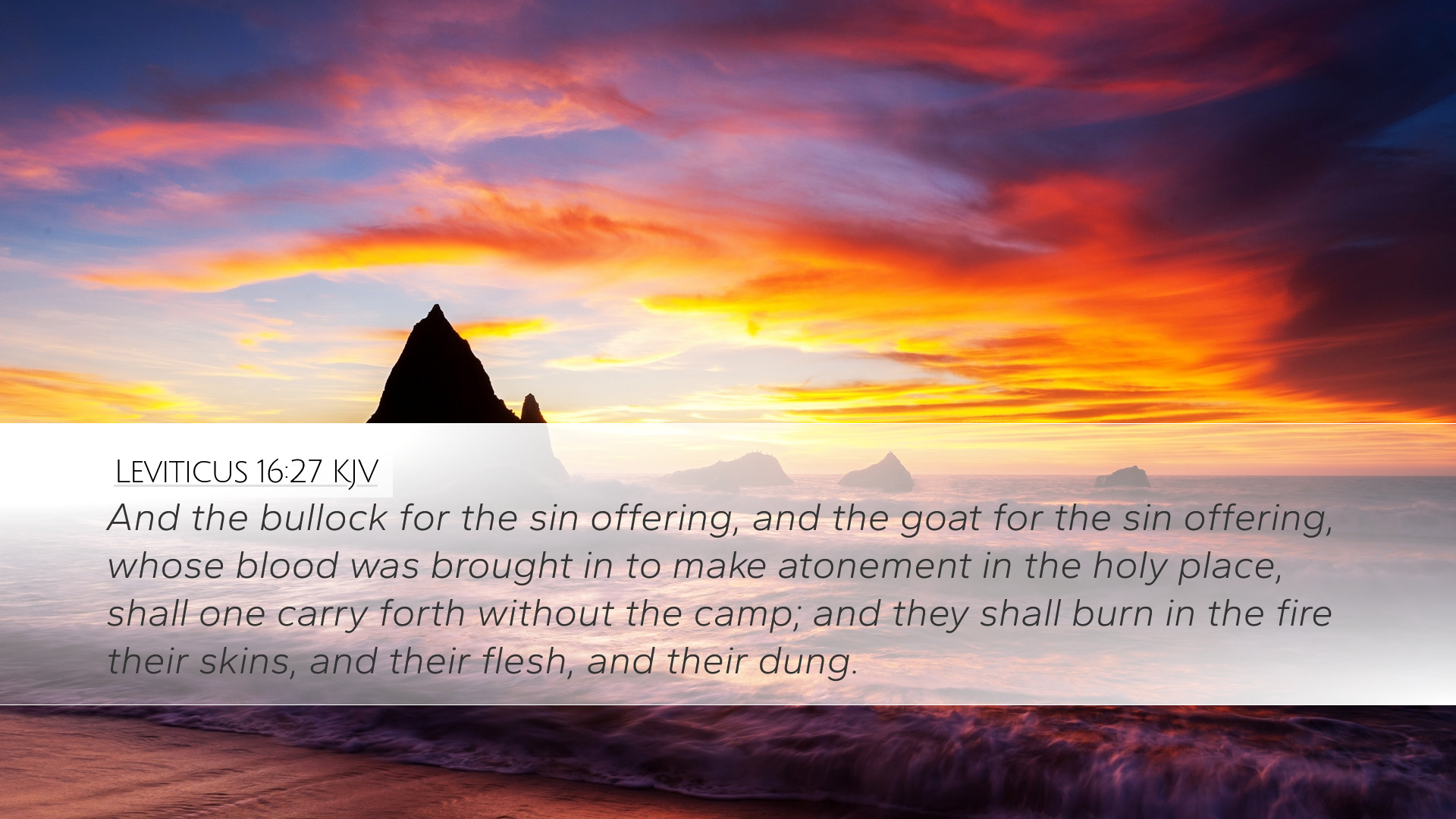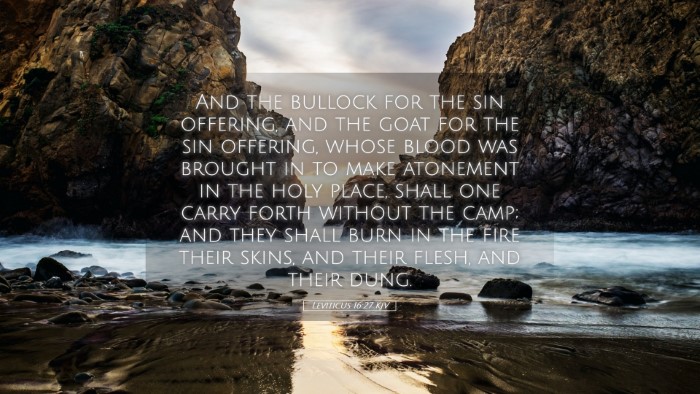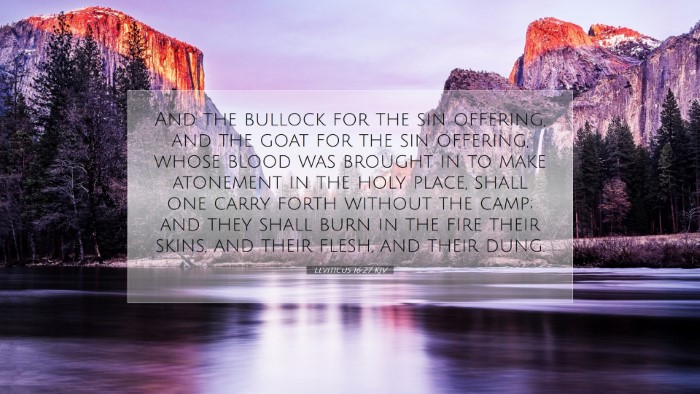Commentary on Leviticus 16:27
Leviticus 16:27 states:
"And the bullock for the sin offering, and the goat for the sin offering, whose blood was brought in to make atonement in the holy place, shall be carried forth without the camp; and they shall burn in the fire their skins, and their flesh, and their dung."
Introduction
This passage serves as part of the instructions given for the Day of Atonement (Yom Kippur), a sacred observance in Israelite worship. The significance of the sin offerings and their subsequent disposal highlights the seriousness of sin and the necessity for atonement in the life of God's people.
Insights on the Verse
Contextual Understanding
Leviticus, often referred to as the book of rules and regulations for the Israelite community, contains detailed commandments concerning various aspects of worship and moral conduct. The Day of Atonement is particularly important as it symbolizes purification and reconciliation with God.
Matthew Henry's Commentary
Matthew Henry emphasizes the solemnity of the Day of Atonement by describing it as the annual occasion for Israel to acknowledge its sins before the Lord. He notes that the bullock and goat serve distinct purposes in atonement, illustrating the deep needs for purification – both for the community and for the individual.
- Symbolism of the Offerings: The bullock represents the heavy burden of sin, which is removed from the presence of God.
- Isolation of the Sacrifices: The act of taking the animal outside the camp signifies the removal of sin from the community.
- Notions of Holiness: The burning of the remains demonstrates that sin cannot remain in God's presence.
Albert Barnes' Notes
Albert Barnes provides a detailed exposition of the ritual surrounding the sin offerings. He stresses that the act of burning the flesh, skin, and dung signifies complete destruction, representing God's divine judgment on sin.
- Full Atonement: Barnes posits that the offerings emphasize the means by which complete atonement is secured for the people of Israel.
- Dung Symbolism: The inclusion of dung signifies the totality of sin's defilement and how it is to be completely removed from the community.
- Separation from God: The disposal outside the camp illustrates that sin separates humanity from God's fellowship.
Adam Clarke's Commentary
Adam Clarke focuses on the cultural implications of sacrifice and expiation. He draws attention to the necessity of these rituals in maintaining the covenant relationship between God and His people.
- Covenantal Faithfulness: Clarke argues that the precise execution of these sacrifices reflects the faithfulness that God requires of His people.
- Foreshadowing Christ: He draws a parallel with New Testament theology, underscoring how these rituals foreshadow the ultimate sacrifice of Christ for the atonement of sins.
- Community Restoration: Clarke notes that the process represents not just individual repentance but a communal restoration necessary for corporate worship.
Theological Reflections
The thrust of this passage is multifaceted, providing rich theological insights for pastors, theologians, and students alike.
- Understanding Sin: The verse highlights the weightiness of sin and the necessity for repentance and atonement.
- God's Holiness: The burning of the sacrifices exemplifies the concept that God cannot dwell with sin, reinforcing the need for purification.
- Hope in Atonement: The ritualistic nature of these offerings reminds believers today of the grace offered through Christ's sacrifice, establishing a clear link between the Old and New Testament narratives.
Conclusion
Leviticus 16:27 encapsulates profound themes relevant to the faith community: the seriousness of sin, the necessity for atonement, and the ultimate hope found in God's provision. Pastors and theologians can draw upon these insights to deepen their understanding of God’s character and His covenantal relationship with humanity.


